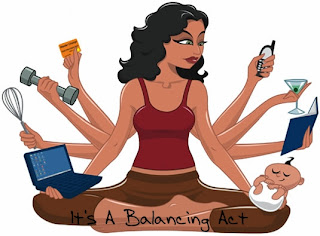Sound Advice for Mother's Day
Take care of yourself— Set aside time to engage in healthy activities that you enjoy or that help you relax. Identify hobbies, increase exercising or eating healthy foods. Making time for yourself will help you better manage stressful situations and allow you to better care for the whole family. Also, find something that makes you laugh – humor is important, and laughter can really make life a whole lot easier.
Recognize how you deal with family stress — Some people deal with stress by engaging in unhealthy behaviors, such as smoking, drinking, comfort eating, or yelling and becoming irritable. Remember that stress is inevitable. What makes the biggest difference is how you manage that stress.
Reach out to others — Enlist and accept help from others including friends and family. Identify ways your family can help with specific needs that must be met like proving a meal or babysitting so you can find time to take a break and rejuvenate. Take time to connect with your girlfriends when you are feeling overwhelmed. Strong female friendships can help women overcome stressors.
Keep things in perspective —Remind yourself that each morning offers a new start and take things one step at a time. Realize that there is no one perfect way to parent. Staying optimistic lowers stress.
Prioritize — You can only do one thing at a time. Delay or say no to the unimportant tasks, and make appointments for more important tasks, such as spending quality time with a spouse or child.
Be organized — Keeping the family and yourself organized reduces stress. Put family health information in separate folders; get family members to keep laundry in color coded baskets; keep book bags in assigned bins. Harried searching for things adds to mom’s stress. Enlist your children’s help in developing an organization plan for your household - if they are involved in the planning, they will be more likely to follow through.
Ask for professional help — If you feel overwhelmed by stress or the unhealthy behaviors you use to cope, you may want to talk with a psychologist who can help you address the emotions behind your worries, better manage stress and change unhealthy behaviours.
If you would like to receive daily tips on how to increase your level of happiness, click the "like" button on Toronto Cetnre for Postiie Psycholgy's Facebook page.
Here's the link: http://www.facebook.com/TorontoCentreforPositivePsychology
HAVE A WONDERFUL DAY!
Until next time,
Dr. Tami Kulbatski, Psy.D., C.Psych.
Psychologist and Director,
Toronto Centre for Positive Psychology * Click here to "like" us on Facebook
Teaching Co-representative of Division 17, Division of Positive Psychology, American Psychological Association
Co-editor, Ten Commandments for Couples
website: www.doctortami.com
phone: (416) 708-7022




